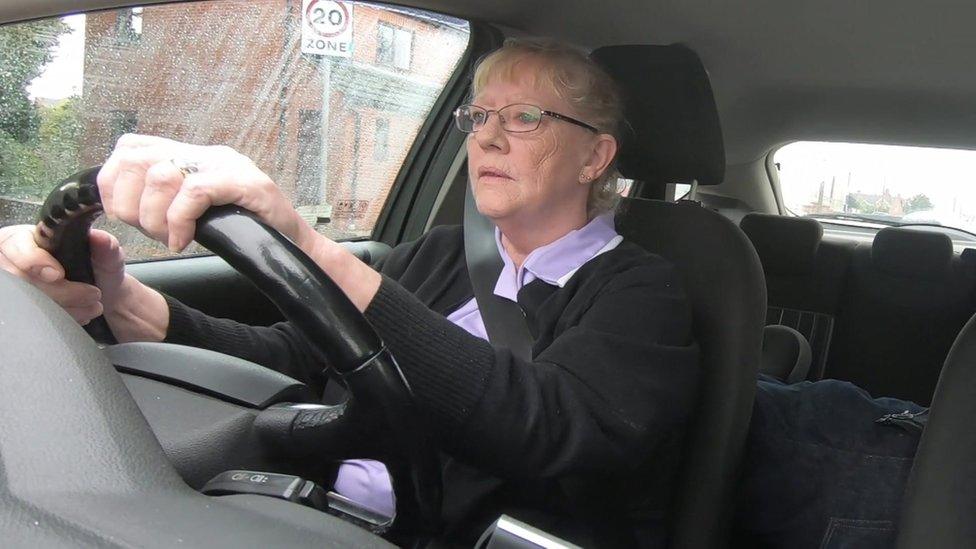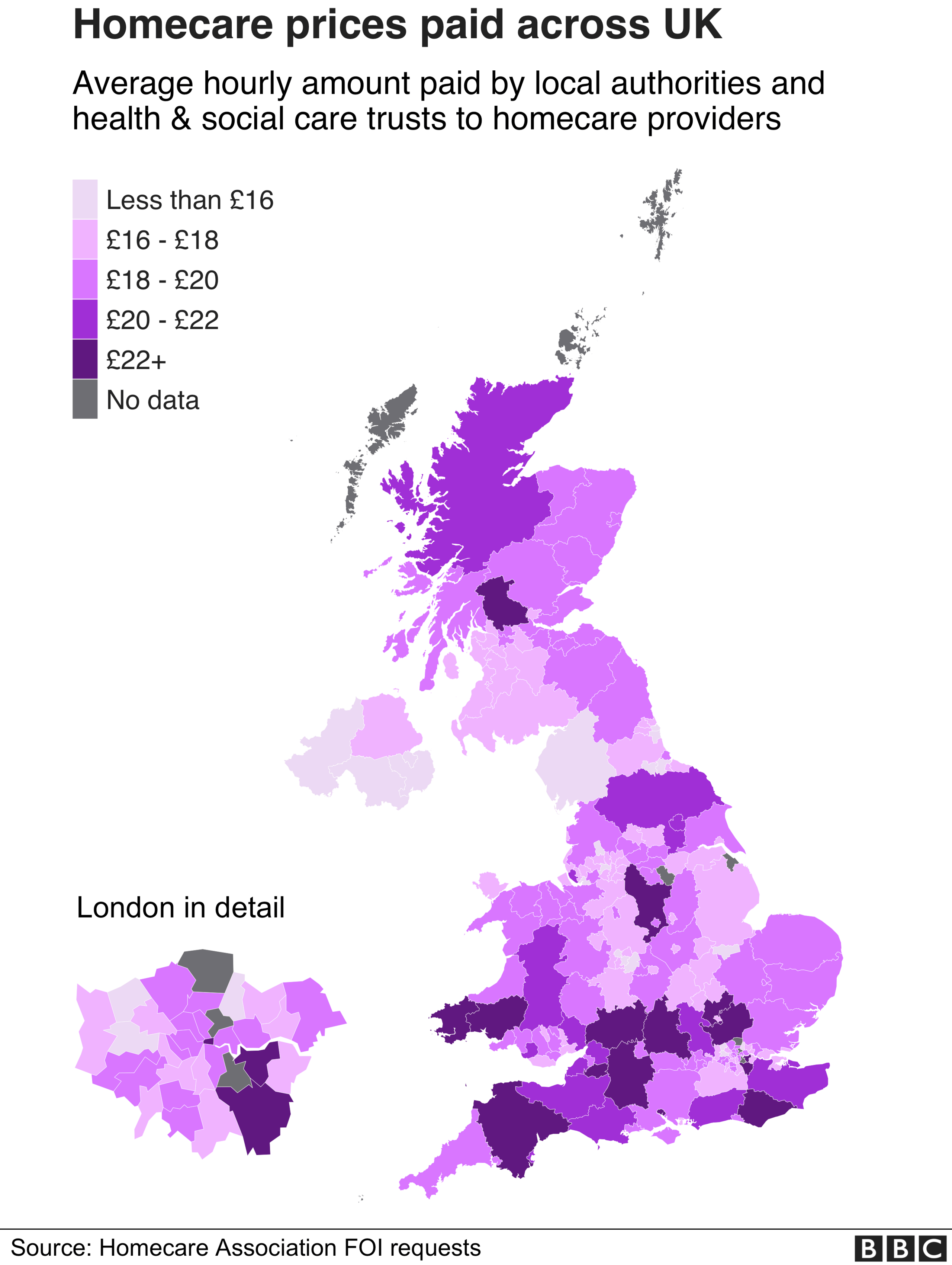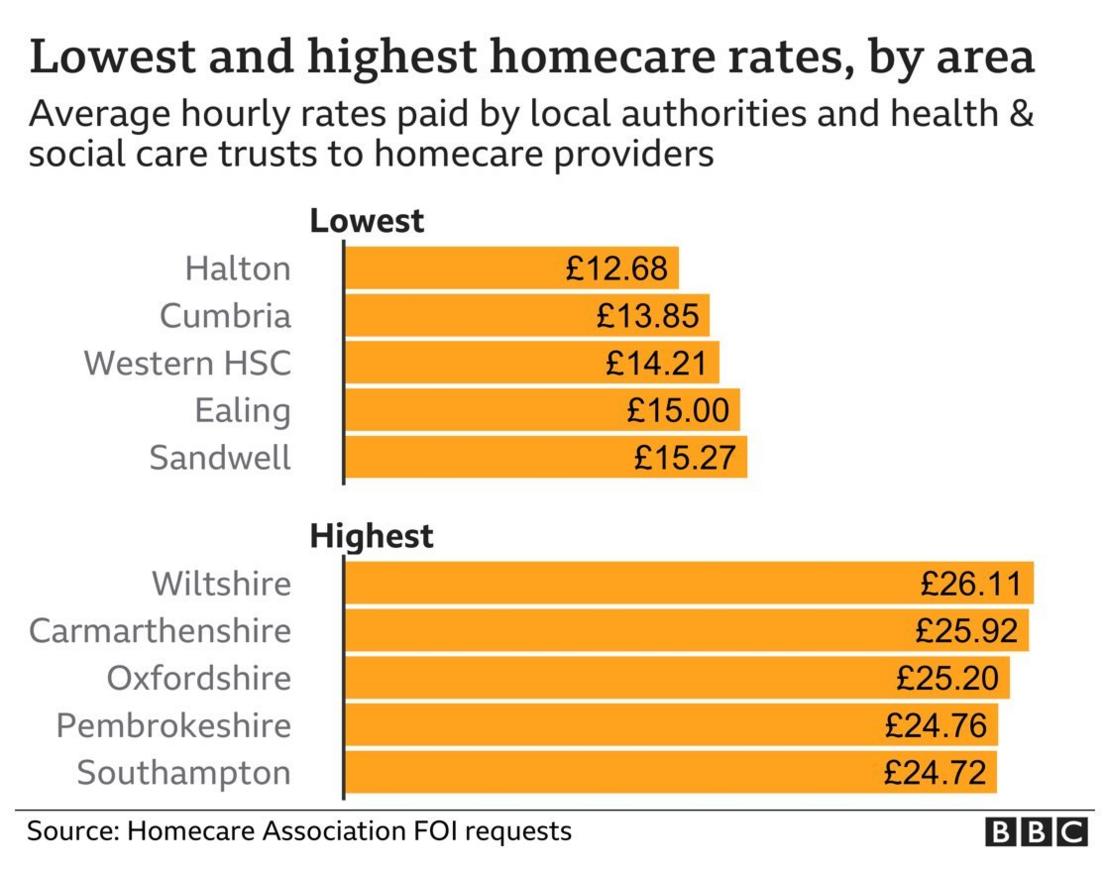Homecare costs outstrip funding from councils, says report
- Published

Many councils are not paying homecare companies a high enough hourly rate to cover basic costs like travel time between clients, says a report.
It means, despite losing staff faster than they can be replaced, companies are unable to raise wages, says the Homecare Association.
Low wages and feeling undervalued are key factors leading care staff to quit, says the report.
Councils say they do not have enough money to pay companies more.
The Homecare Association, which represents some 2,340 care providers, calculates the true minimum cost of providing an hour of homecare in the UK is £21.43.
This covers the minimum wage, travel time, pensions, holidays, training, PPE, office staff and 60p for profit or reinvestment in services.
Private clients who hire care direct from providers pay an average £24.94 for an hour of homecare, according to separate analysis by software company The Access Group.
But private clients are a minority, with the bulk of homecare (about 70%) funded by the state, says the Homecare Association.
Inequality
Freedom of Information data collected for the Association shows the average paid by councils in Great Britain and health boards in Northern Ireland is £18.45.
The report found that areas with some of the highest levels of deprivation also had the lowest average fee rates for homecare.
Sorry, this content does not appear to be working
The Homecare Association says with some local authorities still buying homecare by the minute, and little or no funding for better pay, it makes it very difficult to compete with other sectors for staff.
Richard Walker, chief executive of Optimo Care Group in South Yorkshire, has tried to improve pay and conditions for staff, but says his efforts are limited by local authority funding levels.
"We're simply not competing... so I think people go elsewhere...
"It feels like we're in a harder position now than we've ever been before."
Richard estimates that, overall, Optimo's costs outstrip council funding by about 25%, although this varies according to local authority.
"We're miles away at the moment in terms of the rates that have been paid."
The staff shortage means the company is having to turn away referrals - and he finds not being able to give people the help they require when they need it "really tough... quite demotivating".

Pay is not "level with the job you do out there", says Denise Wickson
Among his staff is Denise Wickson, a home carer for 16 years.
For Denise, the work brings "great reward, great satisfaction".
"I love the job," she says.
But sometimes she can be up at 05:00 and not finish until 23:00.
"You never get to switch off, you're always worried, 'Is it covered?'. You get called and they say you're needed to go out. I never say no."
Denise says the money is not "level with the job you do out there", and some people "just go elsewhere where it's more money and it's not unsociable hours".
'Crisis point'
The Homecare Association says lack of support in the community can lead to:
hospitals unable to discharge patients who are medically ready
emergency admissions of people whose conditions deteriorate through lack of appropriate care

"It makes little sense to neglect people at home in the community, wait until they reach crisis point, then admit them to the most expensive setting of care in an acute hospital," says the report.
The Association wants central government to "invest properly" in homecare, raising pay to £11.20 per hour, at a cost of £1.6bn a year across the UK, plus:
a ban on purchasing homecare by the minute
a professional register for care workers
social care workers added to the Shortage Occupation List to make it easier to hire from overseas

The Association of Directors of Adult Social Services (ADASS) said: "Councils may want to pay more for care, but their hands are tied, because they simply do not have the money to do so."
An ADASS spokesperson urged ministers to use Wednesday's Spending Review , externalto invest in care and support at home to "lift the pressure on family carers, ensure the viability of high quality home care providers, and properly reward the committed, courageous and compassionate people working in social care".
The Local Government Association (LGA), which represents councils in England, said: "Councils work closely with care providers, and understand their concerns about paying a fair price for the cost of care.
"Such is the scale of funding pressures, this is proving harder to achieve and we urgently need new national funding to meet immediate pressures in the social care system."
The government says a new £162.5m fund will help "bolster" the homecare workforce, while the social care levy, announced last month, includes £5.4bn earmarked for social care over the next three years, with £500m to be spent on the workforce.
But the LGA questions whether the levy will raise enough money to fund crucial reforms, and wants to see a greater share of it go to front-line social care.